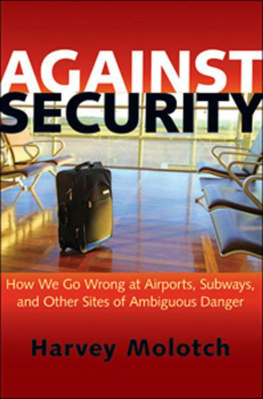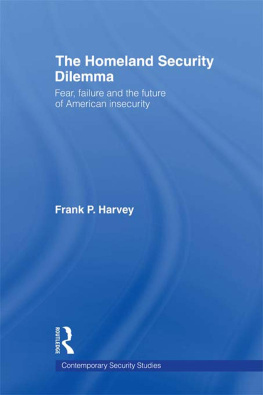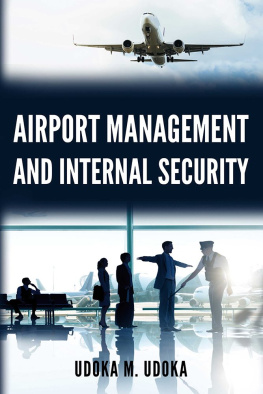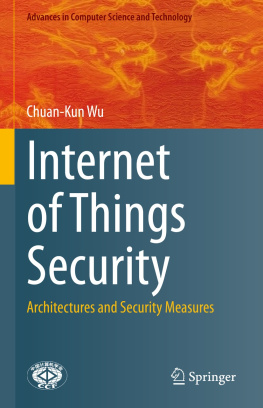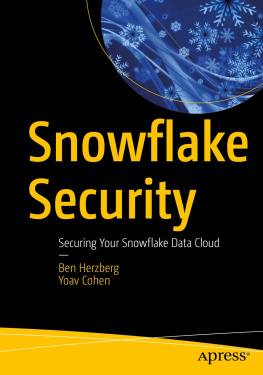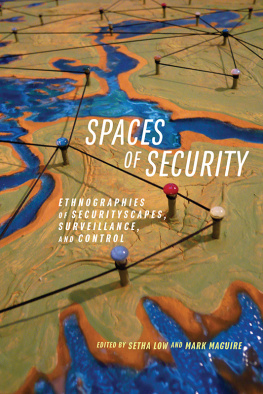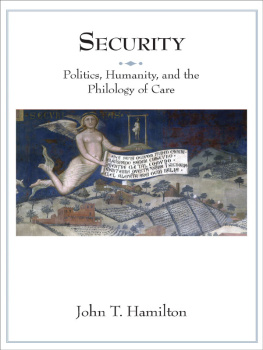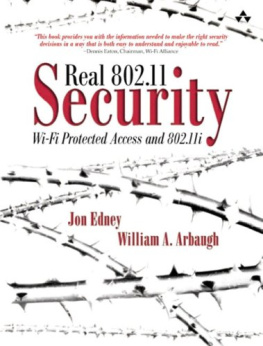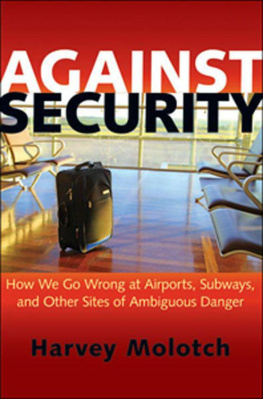
Against Security

Against Security
HOW WE GO WRONG AT AIRPORTS, SUBWAYS, AND OTHER SITES OF AMBIGUOUS DANGER
Harvey Molotch
PRINCETON UNIVERSITY PRESS
PRINCETON AND OXFORD
Copyright 2012 by Princeton University Press
Published by Princeton University Press,
41 William Street, Princeton, New Jersey 08540
In the United Kingdom: Princeton University Press, 6 Oxford Street, Woodstock, Oxfordshire OX20 1TW
press.princeton.edu
All Rights Reserved
Library of Congress Cataloging-in-Publication Data
Molotch, Harvey Luskin.
Against security : how we go wrong at airports, subways, and other sites of ambiguous danger / Harvey Molotch.
p. cm.
Includes bibliographical references and index.
ISBN 978-0-691-15581-4 (cloth : alk. paper)
1. TerrorismPreventionGovernment policyUnited States. 2. National securityUnited States. 3. TransportationSecurity measuresUnited States. I. Title.
HV6432.M645 2012
363.325170973dc23
2012012128
British Library Cataloging-in-Publication Data is available
This book has been composed in Electra
Printed on acid-free paper.
Printed in the United States of America
1 3 5 7 9 10 8 6 4 2

For Christopher, Emma,<>
Contents

Preface

Although I mostly wander around to some very different places and topics, this book did begin with the events at Ground Zero. Living in downtown Manhattan and watching the towers collapse before my eyes, the bombing interrupted my day. There were less than two hours before the start time of my regular lecture at NYU, where I teach (Tuesdays and Thursday mornings that semester). My mind was busy with preparations. The inertia of lifecleaning up the breakfast dishes, preparing class noteswas in full force. But planes into buildings? People jumping from ninety stories? What was I do with this extraordinary in my ordinary? Move forward in deference to the life I had been living or stop andstop and what? Thats a problem people face when disaster comes close by.
I also had some personal stakes. My partner of twenty-five years had set off that morning for a flight to Europe on United Airlines, and United, the news told us early on, was one of the airlines involved in the catastrophe. Was he on one of the planes? Was he stuck at Kennedy? Was he dead? Like the simultaneity of hot and cool breezes one can feel in coastal California when the Santa Ana winds blow hot desert air through the cool ocean breeze, things are oddly felt together. The private issue and public concern waft in and out, fear for a specific loved one and then back again to the public horror. Sometimes, and somehow, both at once.
This lived confusion is at least part of disaster response across the board and a basis for some of the investigations in this book. There is a need to do something, which is what being human is all about. We think and project forward. We rely on the sediments of past practice to make the next move. When something portending danger comes out of the blue, we are at sea: we cannot just roll onward with our past. Mental practice continues as before; we have no cognitive choice. But consciousness, like a cartoon mouse running from the cat, flattens as it meets the wall of impossibility.
Maybe that is what I saw in faces when I went out to the street in front of my apartment building as my first attempt to do something. We had television for only a short while because our reception depended on the broadcast antennae atop Tower One; when it got hit, we lost that connection. On the ground, I watched the early trickle of escapees make their way up through Washington Square from the Financial District, heading on foot to their own houses or some other haven farther up the island. All transit had been shut down and the streets were soon cordoned off. As the trickle thickened, I saw the perplexity of people who, in ways far deeper and harsher than in my own experience, did not know what had hit them. Their eyes seemed not to have the urbane go-ahead that is usually on the faces of city pedestrians. They reminded me more of gaunt models on a Milan fashion runway, seeming to be looking at nothing in particular, but deliberate indeed. Some of them moved in a shuffling kind of way, yet with intensity.
Among us bystanders, I felt the surge of the better angels. The lobby of the big apartment building adjacent to mine became a kind of rest stop for people to sit or lie down. Some women had given up on their high-heels and their bare feet endured shrapnel at the site or the ordinary streetscape fragments on route. A number of us went to the nearby grocery store to buy juice, water, and food to serve up. We competed a bit to pay for the stuff, like friends trying to buy a round of drinks. Then we had to contend with the shop owners offer that it all be on him. As with the citys general gush of food, shelter, and volunteering, the samaritans were not just good but plentiful.
No matter what our identities of occupation, race, or social standing we did">Technology and Innovstio indeed come together. We did not have political discussions. World history was not on the menu. Ours was a consensus of sadness, something that would soon be reflected in spontaneous memorials all over the citycrches for loved ones, alerts for the missing, candles of remembrance, murals of affection.
But at least for myself, I was indeed cooking up the larger vision, a sense of what needed to happen at the collective level. As the information started coming in of just who had done the dastardly acts and from how far away their plans had been hatched, I spontaneously came to the conclusion that we now had a clear demonstration of world interdependence. The security of U.S. citizens, it would now be clear to everyone, depended on the dignity of all peoples. I imagined a near-global Marshall Plan in which material aid, educational benefits, and cultural outreach would stretch from the United States to every hamlet: Pete Seegers rainbow race, one blue sky above us, one ocean lapping at our shore. We would all know it.
This did not happen. Bewilderment and the need to do something can go in different directions, I was to learn. Perhaps in atonement for having been so wrong about something so important, I came to follow up buying juice with trying to figure out how the grand security apparatus was taking shape on the blocks nearby and in the worlds far away. I wanted to see how it all functions in the concrete as well as the abstract. I had for a good while researched life in the mundane, including the material stuff through which we think and that facilitates the projects of our daily livesroofs over our heads, the knives that slice our bread, and the toilets on which we depend. What had been added, again from direct observation if such directness were really needed, was that there were indeed threats to our stuff and our lives and that some form of defense was indeed reasonable. How then does threat work itself out in life>
Next page
